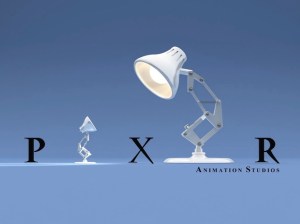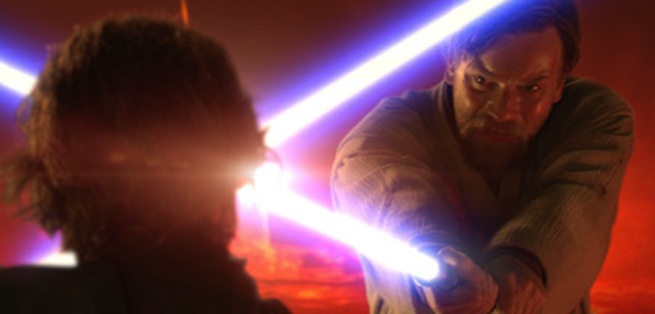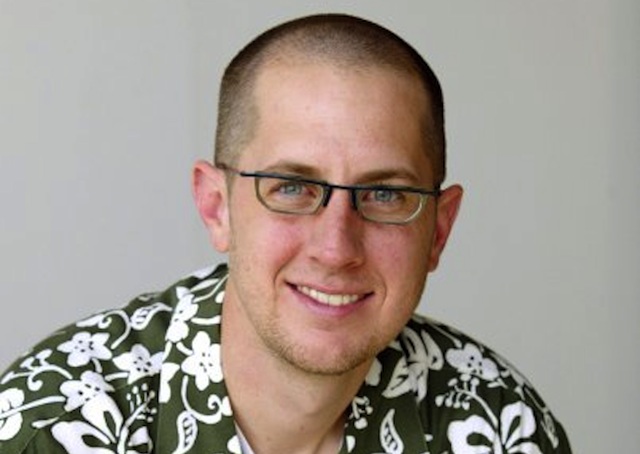When Oren Jacob was a teenager, he hung up Star Wars posters on his bedroom wall. In his early 20’s at a college dorm at Berkeley, he replaced these with a small jumping desk lamp image, Pixar‘s famous logo.
“So your lifelong interest in digital filmmaking was awakened by a reel of a hopping desk lamp?” I asked. “Pretty much,” he said.
 After snagging an internship at Pixar, Jacobs ascended the corporate ladder to be named CTO. He worked for over twenty years under the distant — but still overbearing — presence of Steve Jobs.
After snagging an internship at Pixar, Jacobs ascended the corporate ladder to be named CTO. He worked for over twenty years under the distant — but still overbearing — presence of Steve Jobs.
This week, the great pioneers in digital filmmaking have reunited. With the acquisition of Lucasfilm, Disney will squeeze more value out of the 35-year old Star Wars franchise.
George Lucas was a pioneer in the field of video gaming. EditDroid, was developed by a Lucasfilm spin-off company. You’ll find this editing technology in Photoshop, and in the latest crop of video startups.
On an investor call in the days following the announcement, Disney’s CEO Bob Iger alluded to Lucasfilm’s technology contribution: “It is a sustainable source of branded, high-quality creative content with tremendous global appeal that will benefit all of Disney’s business units and is incredibly well suited for new business models, including digital platforms.” Read the full story here.
For this reason, it’s not surprising that the price of over $4 billion for Lucasfilm is larger than any other Disney purchase since Pixar in 2006. In the aftermath of the announcement, I caught up with Jacob for a conversation about the reunion of Lucasfilm and Pixar, two great production houses under the same roof once again.
VentureBeat: What was your reaction to the news of the acquisition?
Oren Jacob: Disney just purchased the world’s greatest visual effects house. Pixar is the best animation house. It’s kind of remarkable. This is a reunion too — Steve Jobs bought the computer graphics division from [George] Lucas back in the 80s.
VentureBeat: You’re a digital filmmaking buff. But the technology goes beyond movies…
Jacob: Lucasfilm has contributed in meaningful ways for decades. You’ll find the origins of nonlinear editing that you’ll see in an app like SocialCam or Vidi reach back to EditDroid (EditDroid is the nonlinear editing technology that was designed to move analog editing methods to digital). Photoshop is a direct descendent, as is Final Cut Pro. From sound protocols to scanning, the shopping list of technology products is very long and deep.
VentureBeat: How will Disney benefit from owning these two great Bay Area studios, cocooned from Hollywood?
Jacob: Lucasfilm offers an absolutely unique set of properties, crew and capabilities. To have that as part of its corporate empire is an awesome acquisition. Yes, people will joke, “Are we going to see R2D2 with a Mickey Mouse hat?” What’s more interesting is that Disney acquired a company with unique technology and really unprecedented production facilities. Lucasgames was a world class gaming studio. As a family of companies, it has fingers in almost every pot of digital entertainment you could imagine. Now they have reunited under the same umbrella, computer graphic techniques and approaches can be shared back and forth more easily than before. That will advance the state of the arts.
As a family of companies, it has fingers in almost every pot of digital entertainment you could imagine
Oren Jacob, former CTO
Pixar
VentureBeat: Was this acquisition inevitable; was Disney the only contender?
Jacob: Maybe Warner Brothers has the size and scale. It would take a big player. I think that Disney is a a good fit given their corporate agenda. Disney demonstrated effectively when they acquired Pixar and Marvel — both these institutions were able to grow and thrive under the Disney family of companies.
Disney wanted to have a visual effects house in-house for a long time. It’s a big advantage. The cost of doing them is a large part of any production budget.
VentureBeat: Both Pixar and Lucasfilm are Bay Area-based. How has that changed their focus?
Jacob: The industry had a different tenor than down South. There is some commonality between Lucas and Pixar: they are both content companies and technology companies. There is technology that was created to make those films.
VentureBeat: Have you always been interested in digital filmmaking?
Jacob: Like most of my generation, I was obsessed with Star Wars. Then I saw Luxo Jr. (Pixar’s 1986 computer-animated short film featuring a hopping lamp). I knew then that Pixar was one of the few places I wanted to be. But I originally came to the Bay Area because both these companies (Lucas and Disney) were here.
VentureBeat: How did you end up as the CTO of Pixar? Did you have a technical background?
Jacob: I actually have a bachelors in mechanical engineering. I applied for the job in my freshman year when I saw the internship flier. I ended up working there for 20 years, and picked up the technical skills on the job. You have to give Steve [Jobs] credit. Combining technology and the arts: it’s tricky to walk two lines in the same institution. It’s a rare company that can do that. Technology was invented and used by both Pixar and Lucas Arts. To create capabilities and then to develop the craft for the purposing of executing entertainment…it’s the legacy we hope to continue on.
Jacob is the CEO of San Francisco-based ToyTalk, launching early next year. Their mission is to create entertainment-powered by characters and conversation.
VentureBeat's mission is to be a digital town square for technical decision-makers to gain knowledge about transformative enterprise technology and transact. Learn More


